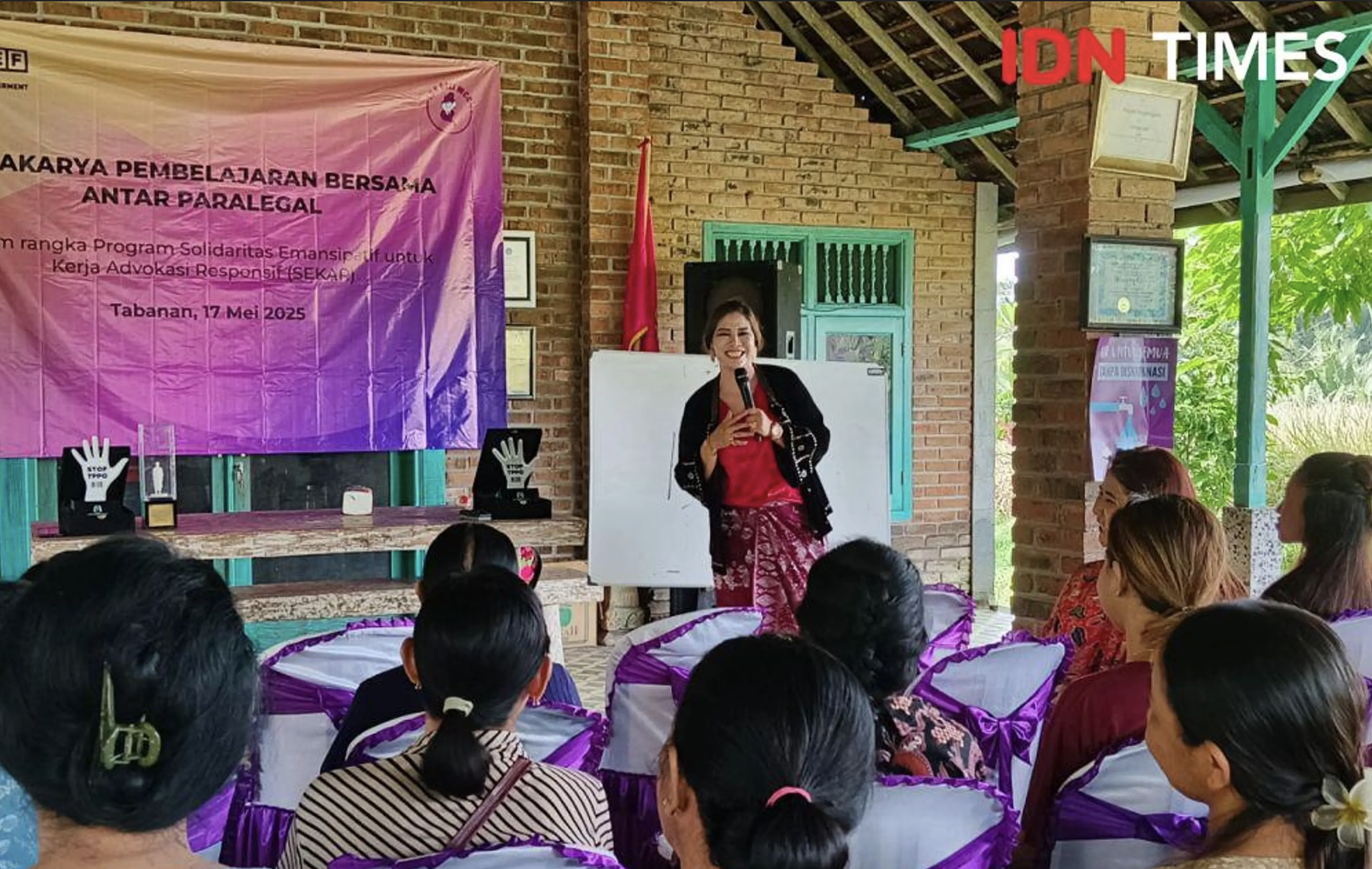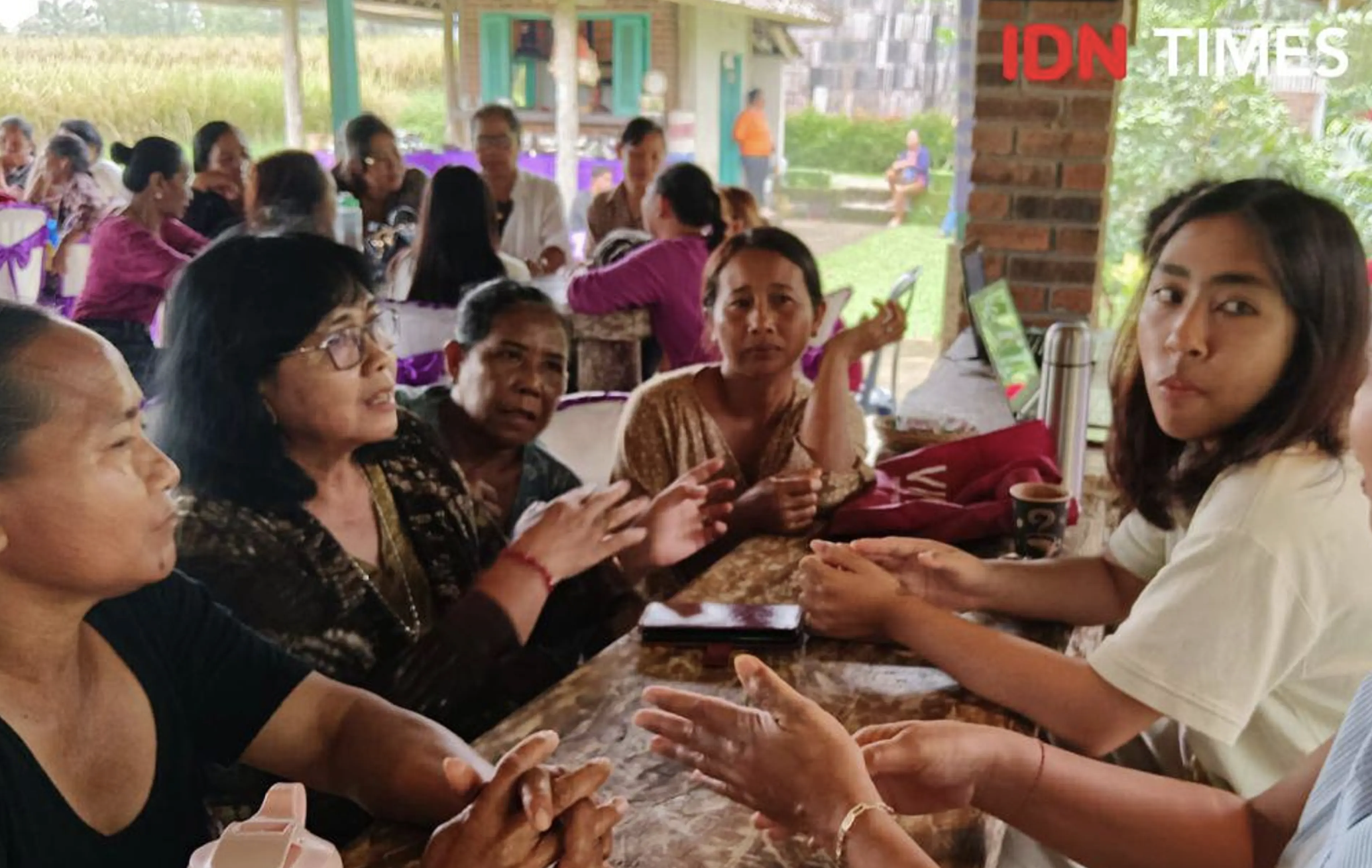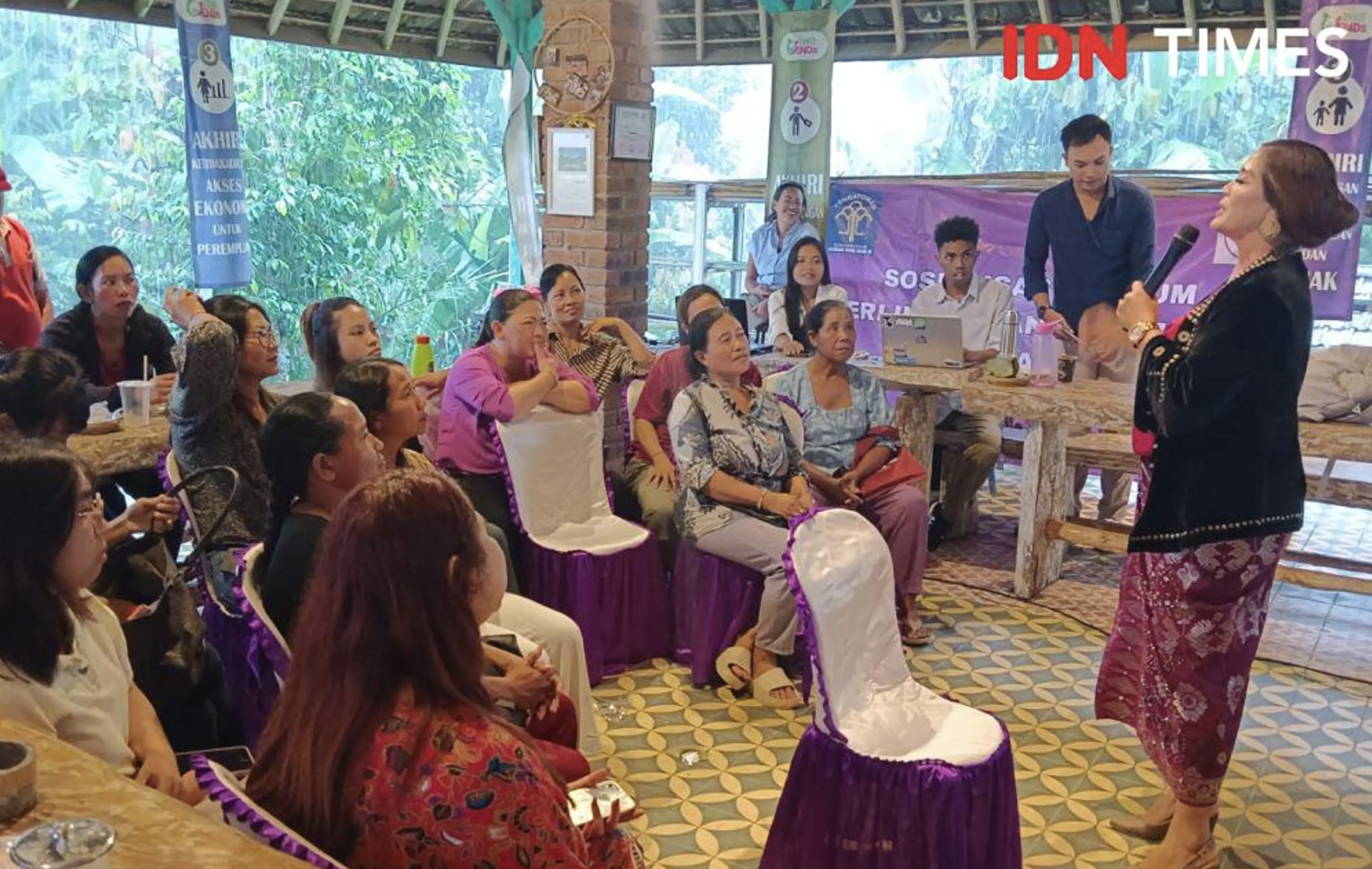Dozens of Women in Bali Trained in Case Assistance Work

The Bali Women Crisis Centre Legal Aid Institute (LBH BWCC) trains paralegals from across the island (IDN Times/Ayu Afria)
Tabanan - The Bali Women Crisis Centre Legal Aid Institute (LBH BWCC) is currently the only legal aid organization in Bali committed to training paralegals. One of its key activities was held on Saturday, 17 May 2025, at the Kubu Bali WCC in Banjar Kekeran, Penatahan Village, Tabanan Regency.
Dozens of paralegals, mostly women from various regions across Bali, gathered to receive legal education. LBH BWCC’s Director, Ni Nengah Budawati, said that this paralegal gathering not only aimed to enhance their legal knowledge but also to strengthen their fieldwork in assisting survivors of violence. “We want to identify challenges, obstacles, and best practices from the 25 paralegals we've selected,” she said.
1. LBH BWCC's paralegals are predominantly women

According to Budawati, the condition of women in Bali is quite striking. Many women from diverse backgrounds are eager and willing to become active paralegals. The fact that most of their paralegals are women wasn’t a deliberate choice — rather, it reflects the high number of female survivors served by the organization.
“We hope that in the coming years, we’ll be able to train and engage more male paralegals,” she added optimistically.
2. Expanding the role of advocacy and support for survivors

The women paralegals active within LBH BWCC come from a wide range of professions — journalists, farmworkers, livestock breeders, entrepreneurs, students, and even a chairperson of a local electoral commission (KPU) in Bali.
So, what exactly do these paralegals learn? They are taught legal principles and trained to analyze real-life cases — from simple disputes to complex cases involving cultural and customary issues. The training equips them to support and advocate for survivors. Their role as paralegals is officially recognized under Indonesia’s Legal Aid Law for the Poor (Law No. 16 of 2011).
“Despite our limited funding, we hope they continue to walk with us. We do our best to support and manage them, so they still feel part of our work and remain actively involved,” Budawati explained.
3. Women are expected to be empowered for themselves

One of the paralegals, Ni Wayan Suciati (60) from Tabanan Regency, expressed her enthusiasm for the training, saying it gave her valuable insight and experiences. A former hospitality worker, she was inspired to join LBH BWCC and has been a member since 2015. In practice, she no longer feels intimidated when assisting with challenging cases. As a woman, she hopes others will also gain the confidence and independence to handle difficult situations for the sake of their own well-being.
“Paralegals have limited authority, so we focus on providing support and accompaniment,” she noted.